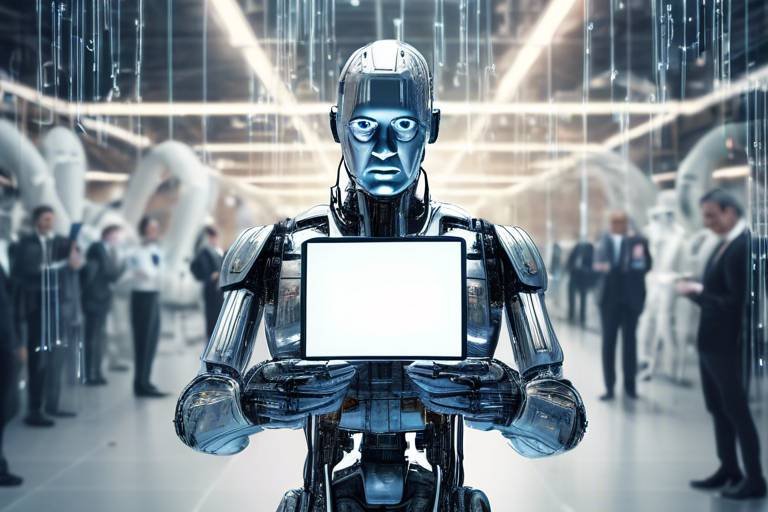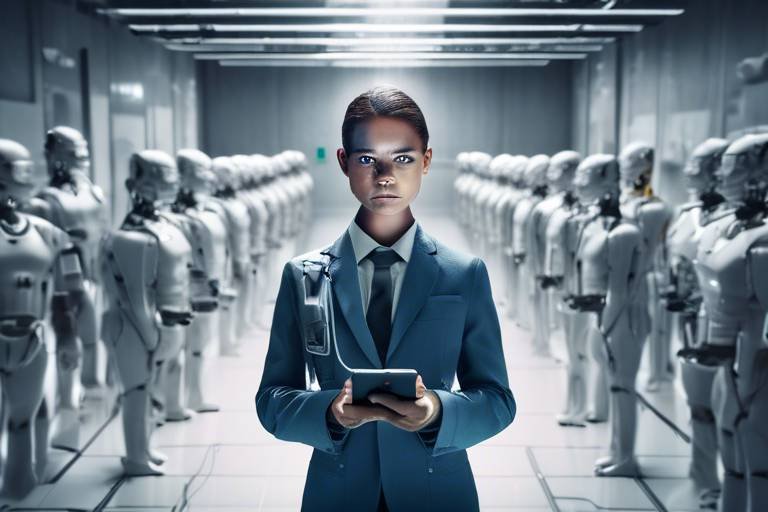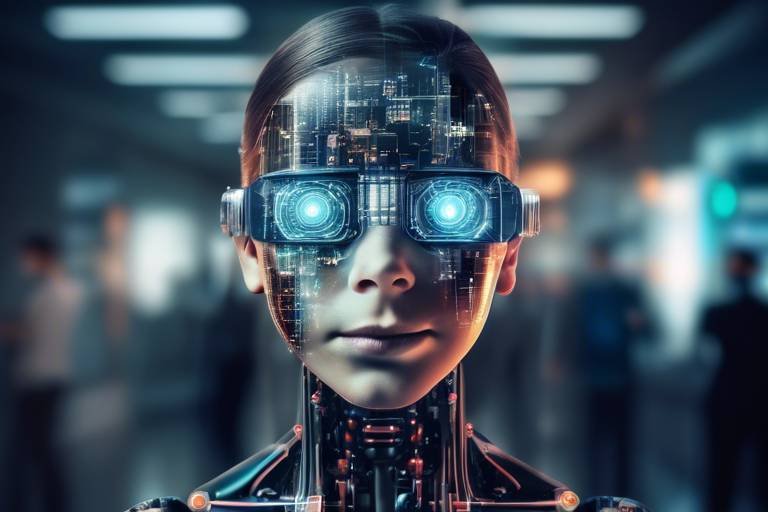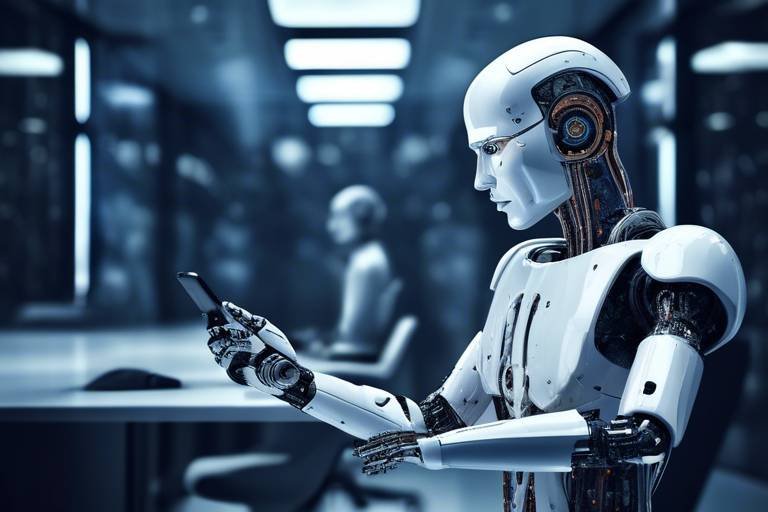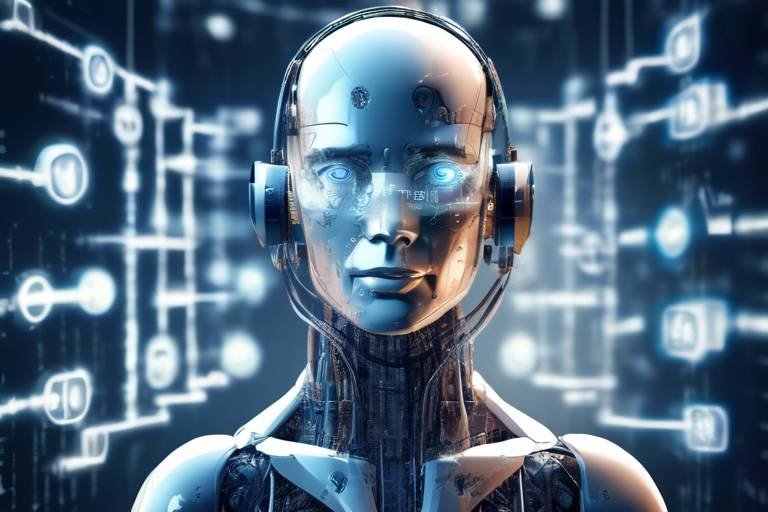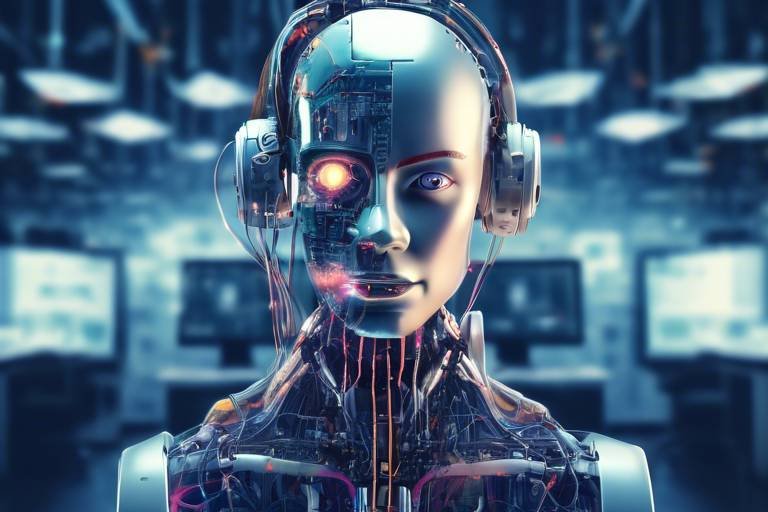Predicting the Impact of AI on the Future of Work
The workplace is undergoing a seismic shift, all thanks to the rise of artificial intelligence (AI). As we stand on the brink of this technological revolution, it's essential to explore how AI is reshaping not just job roles but entire organizational structures. Imagine a world where mundane tasks are automated, allowing employees to focus on more creative and strategic endeavors. Sounds exciting, right? But with every revolution comes its own set of challenges and opportunities. In this article, we will delve into the profound effects AI is having on the future of work, addressing the transformations in job functions, the emergence of new career paths, and the skills needed to thrive in this new landscape.
Automation is no longer a futuristic concept; it’s here, and it's revolutionizing job functions across various industries. Picture this: a factory floor where robots handle repetitive tasks with precision, or a customer service center where chatbots manage inquiries 24/7. These AI-driven tools are enhancing productivity and efficiency, but they also lead to the redefinition of traditional roles. Instead of being replaced, many workers find their jobs evolving. For instance, a manufacturing worker might transition from operating machinery to overseeing AI systems, ensuring they function smoothly. This transformation can be both thrilling and daunting, as it requires a shift in mindset and skill sets.
As AI technology advances, it’s not just about job displacement; it's also about new opportunities. Think of the countless industries that are likely to thrive in an AI-dominated landscape. From data science to AI ethics, the demand for skilled professionals is skyrocketing. For example, roles such as AI trainers, data analysts, and machine learning engineers are emerging as vital components of the workforce. These positions not only require technical proficiency but also a deep understanding of how AI can be leveraged to solve real-world problems. The future job market will be a melting pot of creativity and technology, where innovation takes center stage.
With AI integration, the demand for specific skills is rapidly changing. Workers must now equip themselves with a combination of technical and soft skills to stay relevant. Technical skills, such as programming and data analysis, are essential, but they must be complemented by soft skills like communication and critical thinking. The ability to collaborate with AI systems and interpret their outputs will be crucial for success. In this evolving landscape, the mantra is clear: adapt or get left behind.
Both technical proficiency and soft skills are crucial in the AI workplace. While technical skills might get you in the door, soft skills will help you climb the ladder. Imagine a brilliant coder who struggles to communicate ideas effectively; their potential may remain untapped. On the flip side, a team player with strong interpersonal skills can bridge gaps between technical teams and stakeholders, driving projects to success. The balance between these skill sets is not just important; it’s imperative for career success in the AI era.
The ability to learn and adapt is vital in the fast-paced AI environment. Lifelong learning is no longer a luxury; it's a necessity. As technology evolves, so too must our skills. This means embracing a mindset of continuous improvement and seeking out opportunities for growth. Whether through online courses, workshops, or professional development programs, investing in your education is key to ensuring career longevity. Remember, in the world of AI, those who stop learning will be left behind.
AI is not just changing job roles but also workplace dynamics. The integration of AI tools can enhance collaboration and communication, creating a more connected work environment. Imagine a scenario where AI facilitates real-time feedback during team projects, allowing for quicker adjustments and fostering a culture of innovation. However, it’s essential to strike a balance between leveraging technology and maintaining human connections. After all, it’s the people behind the technology that drive success.
The rise of AI brings several challenges, including ethical dilemmas and job displacement. As we embrace this technology, we must also address the potential negative impacts it can have on the workforce. Questions surrounding data privacy, bias in AI algorithms, and the future of work are pressing concerns that need thoughtful consideration. Responsible AI practices and regulations are necessary to ensure that workers' rights are protected and that technology serves humanity, not the other way around.
Job displacement due to AI is a pressing issue that cannot be ignored. As certain roles become obsolete, it’s crucial to explore strategies for supporting affected workers. This may include retraining programs, career counseling, and creating pathways for transitioning into new roles. Employers, governments, and educational institutions must collaborate to provide resources and support to those affected, ensuring that no one is left behind in this technological revolution.
Ethical considerations are paramount in AI deployment. The importance of responsible AI practices cannot be overstated. Organizations must prioritize transparency, fairness, and accountability in their AI systems. Regulations should be established to protect workers' rights and ensure that AI is used to enhance, not hinder, the human experience in the workplace. As we navigate this new frontier, ethical AI implementation will be critical in shaping a future that benefits everyone.
- What is the impact of AI on job security? AI can lead to job displacement but also creates new opportunities. Workers need to adapt and reskill.
- What skills will be in demand in the AI era? Technical skills like programming are essential, but soft skills such as communication and adaptability are equally important.
- How can companies ensure ethical AI practices? By implementing transparent policies, ensuring fairness in algorithms, and engaging in responsible data usage.
- What does lifelong learning mean in the context of AI? It refers to continuously updating skills and knowledge to keep pace with technological advancements.

The Role of Automation in Job Transformation
Automation is not just a buzzword; it’s a game changer in the world of work. With the rise of artificial intelligence (AI), job functions across various industries are undergoing a profound transformation. Imagine walking into a factory where robots handle the heavy lifting while humans focus on strategic planning and creativity. That’s the kind of shift we’re witnessing today. As AI-driven tools enhance productivity, they also redefine traditional roles, prompting workers to adapt and evolve.
One of the most significant impacts of automation is its ability to take over repetitive and mundane tasks. This doesn’t mean that jobs are disappearing; rather, they are being reimagined. For instance, customer service roles are shifting from answering basic questions to resolving complex issues that require human empathy and understanding. In healthcare, AI can analyze patient data faster than any human, allowing doctors to spend more time with patients rather than sifting through paperwork. This shift not only enhances efficiency but also improves job satisfaction as employees engage in more meaningful work.
However, this transformation is not without its challenges. Many workers may feel threatened by the rise of automation. It’s essential to recognize that while some jobs may become obsolete, new roles are emerging that require a different skill set. For instance, positions such as AI trainers, data analysts, and automation consultants are becoming increasingly vital. The key is to embrace this change rather than resist it. Organizations are now tasked with not only implementing these technologies but also ensuring their workforce is prepared for the future.
To better understand how automation is reshaping job roles, let’s take a look at a few key areas:
| Industry | Traditional Role | Transformed Role |
|---|---|---|
| Manufacturing | Assembly Line Worker | Automation Technician |
| Healthcare | Medical Coder | Data Analyst |
| Retail | Cashier | Customer Experience Specialist |
This table illustrates that while certain roles may diminish, others will rise, demanding a workforce that is both adaptable and skilled. As we navigate this transition, organizations must invest in training and development to prepare their employees for the roles of tomorrow. After all, it’s not just about keeping pace with technology; it’s about leveraging it to enhance human capabilities.
In conclusion, the role of automation in job transformation is a complex but exciting journey. It’s about finding the balance between technology and the human touch. As we embrace these changes, let’s focus on the opportunities that lie ahead. The future of work is not just about machines; it’s about how we can work alongside them to create a more efficient, innovative, and satisfying workplace.

Emerging Job Opportunities in the AI Era
As we stand on the brink of a technological revolution, the impact of artificial intelligence on the job market is becoming increasingly evident. Gone are the days when AI was merely a concept confined to science fiction; it is now a driving force reshaping our workplaces and creating a plethora of new career opportunities. In this brave new world, industries are evolving, and with them, the roles that individuals will play within them. But what exactly does this mean for the workforce? Let’s dive into the exciting job prospects that are emerging as AI continues to advance.
First and foremost, we are witnessing the rise of completely new job categories that didn’t exist a decade ago. For example, positions such as AI Ethicist, Data Curator, and Machine Learning Engineer have become essential as organizations strive to navigate the complexities of AI implementation. These roles demand a unique blend of technical expertise and ethical considerations, showcasing the need for professionals who can bridge the gap between technology and human values.
Moreover, industries that are traditionally not tech-centric are also experiencing a transformation. For instance, the healthcare sector is increasingly relying on AI for diagnostics and patient care, leading to the emergence of roles such as Health Data Analyst and AI-Enhanced Care Coordinator. These positions require not only an understanding of AI technologies but also a deep knowledge of healthcare practices, creating a unique niche for professionals who can navigate both worlds.
In addition to new roles, existing jobs are being redefined. Take, for instance, the role of a Marketing Specialist. With AI tools analyzing consumer behavior and preferences, the traditional marketer’s job is evolving into a more strategic position that leverages data to craft targeted campaigns. This shift emphasizes the necessity for marketers to become adept at using AI-driven analytics tools, thereby enhancing their value in the marketplace.
As we look towards the future, it’s also essential to consider the industries that are likely to thrive in this AI-dominated landscape. The following sectors are expected to see significant growth:
- Technology: As AI technologies continue to develop, tech companies will need a workforce skilled in AI development, maintenance, and innovation.
- Healthcare: With AI's ability to analyze vast amounts of data, healthcare will see a surge in roles focused on data analysis and patient interaction.
- Finance: AI is transforming risk assessment and fraud detection, creating opportunities for data analysts and compliance experts.
- Education: AI-driven personalized learning tools are paving the way for educational consultants and instructional designers.
In conclusion, the AI era is not just about job displacement; it’s about creating opportunities for those willing to adapt and grow. The landscape is changing rapidly, and while some roles may become obsolete, others will emerge, waiting for innovative minds to fill them. As we embrace this technological evolution, it’s crucial for individuals to stay informed and be proactive in acquiring the skills necessary to thrive in this exciting new world.
Q1: Will AI eliminate all jobs?
A1: While AI will automate certain tasks, it will also create new job opportunities in various sectors. The key is to adapt and reskill to meet the demands of the evolving job market.
Q2: What skills should I develop to succeed in an AI-driven job market?
A2: Focus on developing both technical skills, such as data analysis and programming, and soft skills, like critical thinking and emotional intelligence, to remain competitive.
Q3: How can I prepare for the jobs of the future?
A3: Engage in continuous learning through online courses, workshops, and networking with professionals in your field. Staying informed about industry trends is vital.

Skills Required for Future Employment
As we dive deeper into the age of artificial intelligence, it's clear that the skill set required for future employment is evolving at an unprecedented pace. Gone are the days when a simple degree or a few years of experience could secure you a job for life. Today, the landscape is shifting, and workers must adapt to stay relevant. So, what skills are going to be essential in this AI-driven world?
First and foremost, technical skills are becoming increasingly important. Proficiency in data analysis, machine learning, and programming languages like Python or R will be crucial. As AI tools become more integrated into various sectors, the ability to understand and manipulate these technologies will set candidates apart. But it's not just about knowing how to code; it's about understanding the data that drives decisions and being able to interpret it effectively.
However, it's not all about the hard skills. Soft skills are equally vital in the workplace of the future. Skills such as emotional intelligence, collaboration, and creativity will play a significant role in how teams function. AI can handle data and automate processes, but it can't replicate the human touch. For instance, consider how a team brainstorming session could lead to innovative ideas that an AI might not conceive. The ability to communicate effectively and empathize with colleagues will become indispensable.
In addition, adaptability is going to be a key trait in the fast-paced world influenced by AI. The job market will continue to change, and those who can pivot quickly will thrive. Whether it's picking up a new software tool or learning a new methodology, the willingness to embrace change will be a major asset. Employers will be looking for individuals who demonstrate a growth mindset, someone who sees challenges as opportunities for learning rather than obstacles.
Lastly, let’s not forget about the importance of lifelong learning. As AI continues to evolve, so too will the skills required to work alongside it. This means that professionals need to commit to continuous education, whether through formal courses, online certifications, or self-directed learning. The workforce of tomorrow will be filled with individuals who prioritize personal and professional growth, ensuring they remain competitive in an ever-changing environment.
In summary, the skills required for future employment will be a blend of technical knowledge, soft skills, adaptability, and a commitment to lifelong learning. As we move forward, it's essential for workers to embrace this new reality, ensuring they are well-equipped to navigate the challenges and opportunities that AI presents.
- What technical skills will be in demand in the future? Skills such as data analysis, programming, and an understanding of machine learning algorithms will be crucial.
- How important are soft skills in an AI-driven workplace? Soft skills like emotional intelligence, collaboration, and creativity will be essential for effective teamwork and innovation.
- Why is adaptability important in the future job market? The ability to quickly learn new tools and adjust to changes will be vital as AI continues to evolve.
- What is the significance of lifelong learning? Continuous education will help professionals stay competitive and relevant in a rapidly changing job landscape.

Technical Skills vs. Soft Skills
In the rapidly evolving landscape of the workplace, the debate between technical skills and soft skills has become more pronounced than ever. As artificial intelligence continues to integrate into various job functions, it's crucial to understand the distinct yet complementary roles these skill sets play in achieving career success. Technical skills, often defined as the specific knowledge and abilities required to perform tasks related to technology, engineering, or data analysis, are undeniably important. For instance, proficiency in programming languages, data analytics tools, or machine learning algorithms can set a candidate apart in a competitive job market.
However, let's not overlook the power of soft skills! These are the interpersonal skills that help us communicate, collaborate, and connect with others. Skills such as emotional intelligence, teamwork, and problem-solving are becoming increasingly vital as workplaces shift towards more collaborative and innovative environments. Imagine a software developer who can write flawless code but struggles to convey their ideas to a team. Without the ability to communicate effectively, even the most technically proficient individuals can find themselves at a disadvantage.
To illustrate the balance between these two skill sets, consider the following table:
| Skill Type | Examples | Importance |
|---|---|---|
| Technical Skills | Programming, Data Analysis, Cybersecurity | Essential for executing specific job functions and tasks |
| Soft Skills | Communication, Adaptability, Leadership | Crucial for collaboration and navigating workplace dynamics |
In a world where AI can handle many technical tasks, the human touch becomes even more valuable. The ability to empathize, negotiate, and lead effectively can differentiate a great employee from a mediocre one. Moreover, organizations are increasingly recognizing that a diverse skill set enhances team performance. Teams composed of members with a mix of technical prowess and strong interpersonal skills are often more innovative and effective.
As we navigate this new era of work, it’s essential for professionals to cultivate both technical and soft skills. This dual approach not only prepares individuals for current job demands but also equips them to adapt to future changes. After all, the workplace of tomorrow will likely require a blend of these skills to thrive in an AI-enhanced environment.

Continuous Learning and Adaptability
In a world where artificial intelligence is rapidly evolving, the ability to learn continuously and adapt to new circumstances is not just a luxury; it’s a necessity. Imagine standing at the edge of a vast ocean of knowledge, with waves of information crashing against the shoreline every day. If you don't learn to ride those waves, you risk being swept away by the currents of change. Continuous learning equips individuals with the tools they need to thrive in this dynamic environment. It’s like upgrading your software regularly; without those updates, your system becomes obsolete.
The workplace of tomorrow demands not only specific technical skills but also a mindset geared towards lifelong learning. Workers must embrace a culture of adaptability, where change is not feared but welcomed. This means being open to new ideas, processes, and technologies, and having the courage to step outside your comfort zone. For instance, professionals in fields like marketing are now integrating AI analytics into their strategies, requiring them to learn new software and interpret data in ways they never had to before.
But how can one foster this culture of continuous learning? It starts with a proactive approach. Here are a few key strategies:
- Seek Out Learning Opportunities: Whether it’s online courses, workshops, or webinars, take advantage of resources available at your fingertips.
- Network with Peers: Engage with colleagues and industry professionals to share knowledge and experiences.
- Embrace Feedback: Constructive criticism can be a powerful tool for growth. Use it to refine your skills and approach.
Moreover, organizations play a crucial role in fostering this environment. Companies that invest in employee development not only enhance their workforce's capabilities but also boost morale and retention rates. When employees feel supported in their growth, they are more likely to remain engaged and loyal. It’s a win-win situation that can lead to a thriving workplace culture.
In conclusion, the future belongs to those who are willing to learn and adapt. As we navigate through the waves of AI integration, remember that every new skill acquired is like adding a new tool to your toolbox. The more tools you have, the better prepared you are to tackle any challenges that come your way. So, dive into the sea of knowledge and let your curiosity guide you toward a successful and fulfilling career in this AI-driven world.
Q1: Why is continuous learning important in the age of AI?
A1: Continuous learning is crucial because AI technologies are constantly evolving. By staying updated with the latest trends and skills, workers can remain relevant and competitive in the job market.
Q2: How can I start my journey of continuous learning?
A2: You can begin by identifying areas where you want to improve, then seek out online courses, attend workshops, or join professional groups that align with your interests.
Q3: What role do companies play in promoting continuous learning?
A3: Companies can create a culture of learning by offering training programs, encouraging knowledge sharing, and providing resources for employee development.

AI's Impact on Workplace Culture
The integration of artificial intelligence into the workplace is not just about enhancing productivity or automating mundane tasks; it is fundamentally reshaping the very fabric of workplace culture. Imagine a workplace where your colleagues are not just humans but also intelligent machines that can analyze data, predict trends, and even assist in decision-making. This evolution raises intriguing questions about collaboration and communication among team members. How do we coexist with AI, and what does that mean for our daily interactions?
As AI systems take on more responsibilities, they foster a culture of collaboration that transcends traditional boundaries. For instance, AI-driven tools can analyze team performance and provide insights that lead to more effective teamwork. This data-driven approach encourages employees to rely on each other’s strengths and weaknesses, creating a more cohesive environment. AI also facilitates communication by automating routine inquiries and streamlining information sharing. Imagine never having to sift through countless emails to find that one piece of information; AI can help bring it right to your fingertips, allowing for quicker decision-making.
However, this shift is not without its challenges. The introduction of AI can lead to feelings of uncertainty among employees. Questions like, “Will my job still exist in a few years?” or “How will my role change?” can create anxiety. To mitigate these concerns, organizations must foster an open culture where employees feel safe to express their worries and seek guidance. Transparency is key. Companies should communicate how AI will be integrated into workflows and how it will augment rather than replace human roles. This can help alleviate fears and promote a culture of trust.
Moreover, the rise of AI is prompting a shift in values within organizations. Companies are beginning to prioritize innovation and creativity over traditional metrics of success. AI can handle data-heavy tasks, freeing employees to focus on strategic thinking and creative problem-solving. This shift not only enhances job satisfaction but also encourages a culture where employees feel empowered to take risks and experiment with new ideas. The workplace is becoming a playground for innovation, where human intuition and machine intelligence combine to create groundbreaking solutions.
In summary, the impact of AI on workplace culture is profound and multifaceted. It promotes collaboration, enhances communication, and fosters a culture of innovation. However, organizations must navigate the challenges of employee anxiety and ensure transparency to build trust. As we embrace this new era, it's essential to remember that while AI can augment our capabilities, the human element remains irreplaceable. The future of work is not just about machines; it's about how we, as humans, adapt and thrive alongside them.
- How does AI improve workplace communication?
AI tools streamline information sharing and automate routine inquiries, allowing employees to focus on more complex tasks. - Will AI replace my job?
While AI may automate certain tasks, it is more likely to augment human roles, allowing employees to focus on strategic and creative aspects of their jobs. - What skills are necessary to thrive in an AI-driven workplace?
Adaptability, creativity, and strong interpersonal skills are essential, along with technical proficiency in relevant AI tools.

Challenges and Ethical Considerations
The rise of artificial intelligence (AI) has undoubtedly transformed the workplace, but it also brings a slew of challenges and ethical dilemmas that we must confront. As AI systems become more integrated into our daily work lives, we face pressing questions about job displacement, privacy, and decision-making transparency. These issues can feel overwhelming, but by addressing them head-on, we can pave the way for a more equitable future.
One of the most significant concerns is job displacement. As AI systems take over repetitive tasks, many workers may find themselves out of a job. This is particularly evident in industries like manufacturing and customer service, where automation is already prevalent. The World Economic Forum predicts that by 2025, AI could displace 85 million jobs globally. However, it’s crucial to remember that while some roles may vanish, new ones will emerge. The challenge lies in ensuring that workers are supported through this transition.
To tackle job displacement, companies and governments need to implement strategies that focus on reskilling and upskilling the workforce. This could involve providing training programs that equip workers with the necessary skills to thrive in an AI-driven landscape. For instance, organizations might offer workshops on data analysis or machine learning, allowing employees to pivot into emerging roles. The aim is to create a workforce that can adapt to new technologies rather than be left behind.
Another pressing concern is the ethical implications of AI deployment. As AI systems become more autonomous, questions regarding accountability arise. If an AI makes a decision that leads to negative consequences, who is responsible? This dilemma highlights the need for transparency in AI algorithms and decision-making processes. Organizations must ensure that AI systems are designed with ethical considerations in mind, allowing for human oversight and intervention when necessary.
Moreover, privacy is a significant ethical issue. With AI's ability to analyze vast amounts of data, there's a risk of infringing on individuals' privacy rights. Companies must establish clear guidelines on data usage and ensure that personal information is protected. This is not just a legal requirement but also a moral obligation to maintain the trust of employees and customers alike.
To address these challenges, it’s essential to foster a culture of ethical AI use within organizations. This can be achieved by:
- Creating an ethics committee to oversee AI projects.
- Implementing regular audits of AI systems to ensure compliance with ethical standards.
- Encouraging open dialogue about the implications of AI among all stakeholders.
In conclusion, while AI holds immense potential to revolutionize the workplace, it also presents significant challenges that must be carefully navigated. By prioritizing ethical considerations and supporting workers through transitions, we can harness the benefits of AI while minimizing its risks. The future of work should not only focus on efficiency and productivity but also on fairness and responsibility.
Q1: Will AI really take away jobs?
A1: While AI may displace certain jobs, it will also create new opportunities. The key is to focus on reskilling and upskilling the workforce to adapt to these changes.
Q2: What can companies do to ensure ethical AI practices?
A2: Companies can establish ethics committees, conduct regular audits of AI systems, and promote transparency in decision-making processes to ensure ethical AI usage.
Q3: How can workers prepare for the AI-driven future?
A3: Workers can enhance their skills through continuous learning and training programs, focusing on both technical and soft skills to remain relevant in the evolving job market.

Addressing Job Displacement
The rapid advancement of artificial intelligence (AI) has undeniably brought about a wave of transformation in the workplace, but with this progress comes a significant concern: job displacement. As companies increasingly adopt AI technologies to streamline operations and enhance productivity, many traditional roles are at risk of becoming obsolete. This situation raises an important question: how do we support those affected by these changes? The answer lies in a combination of proactive strategies, community support, and a focus on reskilling.
First and foremost, reskilling and upskilling initiatives are essential. Organizations must invest in training programs that equip their employees with the necessary skills to thrive in an AI-enhanced environment. For instance, workers who once performed routine tasks can be trained to take on more complex roles that require critical thinking and creativity—skills that AI cannot easily replicate. By offering workshops, online courses, and mentorship programs, businesses can help their workforce transition smoothly into new roles. These initiatives not only benefit employees but also contribute to a more adaptable and skilled workforce overall.
Moreover, collaboration between the public and private sectors is crucial in addressing job displacement. Governments can play a significant role by creating policies that promote lifelong learning and provide financial support for displaced workers. For example, implementing tax incentives for companies that invest in employee training can encourage businesses to prioritize workforce development. Additionally, public programs that focus on career counseling and job placement services can help individuals navigate their career transitions more effectively.
Another vital aspect of addressing job displacement is fostering a culture of entrepreneurship. As some jobs fade away, new opportunities arise, particularly in the realm of startups and small businesses. Encouraging displaced workers to explore entrepreneurship can lead to innovative solutions and job creation. Governments and organizations can support this by providing resources such as funding, mentorship, and access to business networks. By empowering individuals to take charge of their careers, we can help mitigate the impact of job loss while fostering economic growth.
It’s also important to consider the emotional and psychological aspects of job displacement. Losing a job can be a traumatic experience, leading to feelings of insecurity and anxiety. Therefore, providing access to mental health resources and support networks is vital. Organizations can create safe spaces for employees to share their experiences and seek guidance. This support can help individuals regain their confidence and motivation as they transition into new roles.
In conclusion, while job displacement due to AI is a significant challenge, it is not insurmountable. By focusing on reskilling, promoting collaboration between sectors, fostering entrepreneurship, and addressing the emotional needs of displaced workers, we can create a more resilient workforce ready to face the future. The key is to remain proactive and adaptable, ensuring that everyone has the opportunity to thrive in an ever-evolving job landscape.
- What is job displacement? Job displacement refers to the loss of jobs due to various factors, including technological advancements like AI, which can automate tasks previously performed by humans.
- How can companies help employees facing job displacement? Companies can help by investing in reskilling programs, offering career counseling, and creating a supportive work environment that encourages personal and professional growth.
- What role does government play in addressing job displacement? Governments can implement policies that promote lifelong learning, provide financial support for training programs, and encourage collaboration between public and private sectors.
- Can entrepreneurship help mitigate job displacement? Yes, encouraging displaced workers to explore entrepreneurship can lead to new job creation and innovative solutions, helping to offset the impact of job loss.
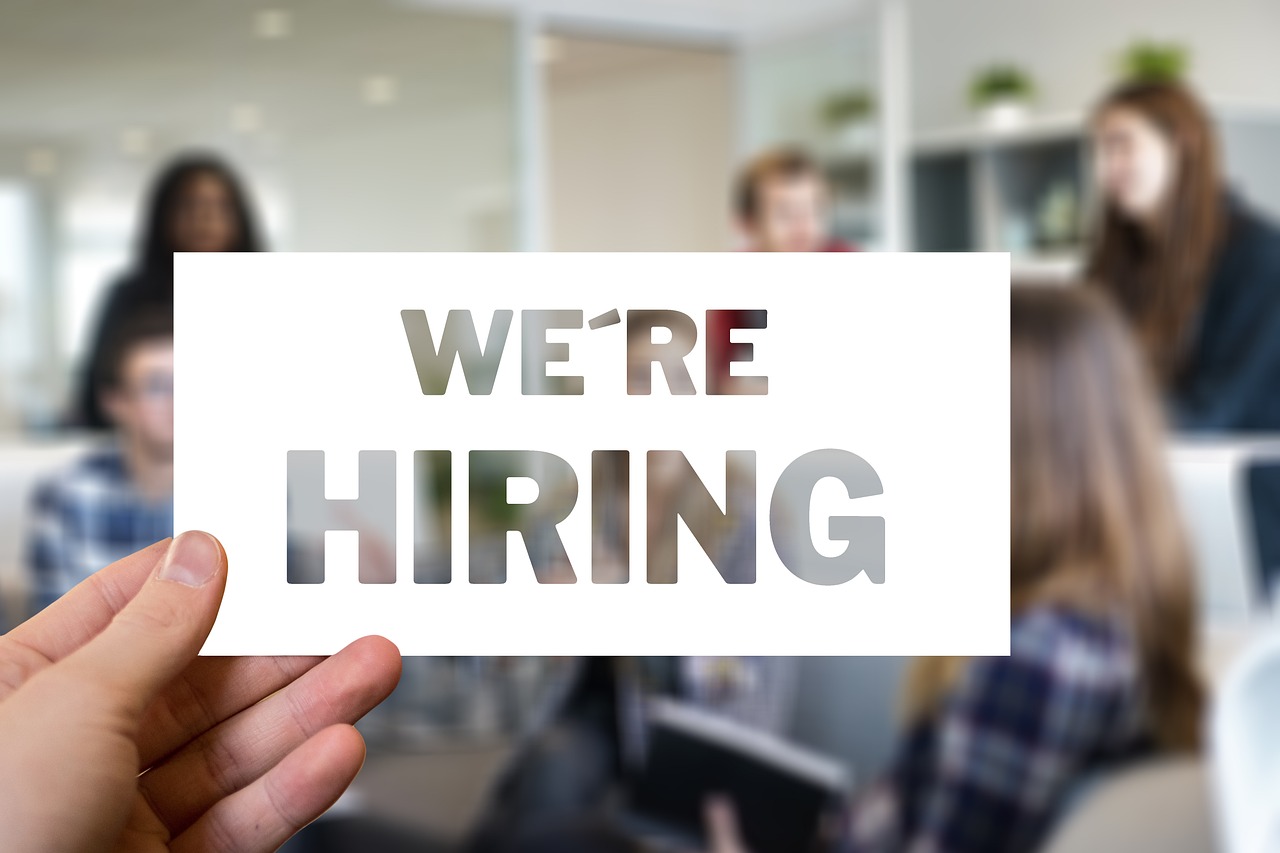
Ensuring Ethical AI Implementation
As we plunge deeper into the AI revolution, the question of ethics looms larger than ever. It's not just about creating advanced technologies; it's about ensuring that these technologies are used responsibly and fairly. The implementation of AI must be guided by a framework of ethical principles to safeguard workers' rights and societal norms. Imagine AI as a double-edged sword—it can either be a powerful ally in enhancing productivity or a potential threat if wielded irresponsibly. So, how do we ensure that the benefits of AI are realized without compromising ethical standards?
One of the first steps in ensuring ethical AI implementation is establishing clear guidelines that govern its use. These guidelines should address critical issues such as privacy, bias, and accountability. For example, organizations need to ensure that their AI systems do not perpetuate existing biases present in the data they are trained on. This is crucial because biased AI can lead to unfair treatment of individuals based on race, gender, or other personal characteristics. To combat this, companies can adopt practices like regular audits of their AI systems to identify and rectify any biases.
Moreover, transparency plays a pivotal role in ethical AI. Stakeholders, including employees and customers, should be aware of how AI systems make decisions. This transparency fosters trust and allows individuals to understand the rationale behind AI-driven outcomes. Imagine a scenario where an AI system denies a loan application; if the reasoning behind that decision is opaque, it can lead to frustration and distrust. Therefore, organizations should prioritize creating explainable AI models that can articulate their decision-making processes.
Additionally, the implementation of ethical AI requires a collaborative approach. Stakeholders from various sectors—technology, business, academia, and even the public—must come together to discuss and establish ethical standards. This collaboration can take the form of forums, roundtable discussions, or working groups dedicated to the ethical implications of AI. By pooling diverse perspectives, we can create a more comprehensive understanding of the ethical landscape surrounding AI.
Finally, regulatory bodies must step in to ensure that ethical standards are not just suggestions but requirements. Governments and regulatory agencies need to develop policies that enforce responsible AI practices. This includes establishing penalties for organizations that fail to adhere to ethical guidelines. By creating a robust regulatory framework, we can hold companies accountable for their AI implementations, ensuring that ethical considerations remain at the forefront of technological advancements.
- What are the main ethical concerns surrounding AI? The primary concerns include bias, privacy, accountability, and transparency in decision-making processes.
- How can organizations prevent bias in AI systems? Regular audits, diverse training data, and inclusive design practices can help mitigate bias.
- Why is transparency important in AI? Transparency builds trust and allows stakeholders to understand how decisions are made, reducing frustration and fostering confidence in AI systems.
- What role do regulations play in ethical AI implementation? Regulations ensure that ethical standards are enforced and provide accountability for organizations that misuse AI technologies.
Frequently Asked Questions
- How is AI transforming job roles in the workplace?
AI is reshaping job roles by automating repetitive tasks and enhancing productivity. This means that while some traditional roles may diminish, new opportunities will arise that focus on more complex problem-solving and creative tasks. Workers will need to adapt to these changes and embrace the evolving landscape of their industries.
- What new job opportunities are emerging due to AI?
As AI technology advances, we are seeing the rise of new job categories such as AI trainers, data analysts, and machine learning specialists. Additionally, industries like healthcare, finance, and logistics are likely to thrive, creating roles that blend human expertise with AI capabilities, allowing for innovative solutions and services.
- What skills should I focus on to remain relevant in the future job market?
To stay relevant, it's crucial to develop both technical skills, such as programming and data analysis, and soft skills like communication and teamwork. The balance between these skill sets will be essential, as employers will seek individuals who can not only work with AI technologies but also collaborate effectively within teams.
- Why is continuous learning important in an AI-driven environment?
Continuous learning is vital because the pace of change in AI technology is rapid. By committing to lifelong learning, workers can keep their skills updated and adapt to new tools and processes, ensuring their career longevity and relevance in a constantly evolving job market.
- How does AI impact workplace culture?
AI influences workplace culture by enhancing collaboration and communication among team members. With AI tools facilitating information sharing and project management, organizations can create a more connected and efficient work environment, fostering innovation and teamwork.
- What are the ethical considerations surrounding AI in the workplace?
Ethical considerations include ensuring that AI implementation does not lead to job displacement without support for affected workers. It's essential to establish responsible AI practices and regulations that protect workers' rights and promote fairness and transparency in AI applications.
- What strategies can help address job displacement caused by AI?
To support workers facing job displacement, companies can offer retraining programs, career counseling, and resources for transitioning into new roles. Encouraging a culture of adaptability and continuous learning will help employees navigate the challenges posed by AI advancements.
- How can organizations ensure ethical AI implementation?
Organizations can ensure ethical AI implementation by developing clear guidelines for AI use, involving diverse stakeholders in the decision-making process, and regularly reviewing AI systems for bias and fairness. Transparency and accountability are key to maintaining trust and protecting workers' rights.


